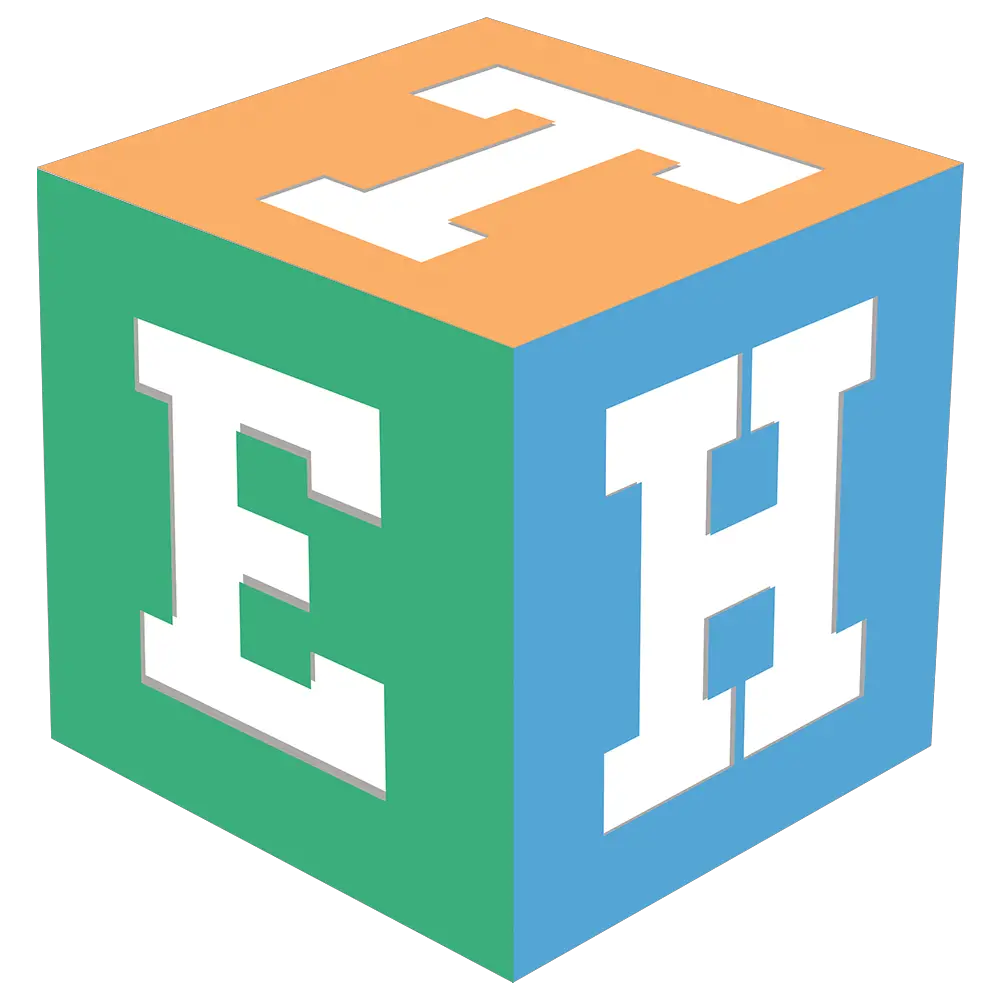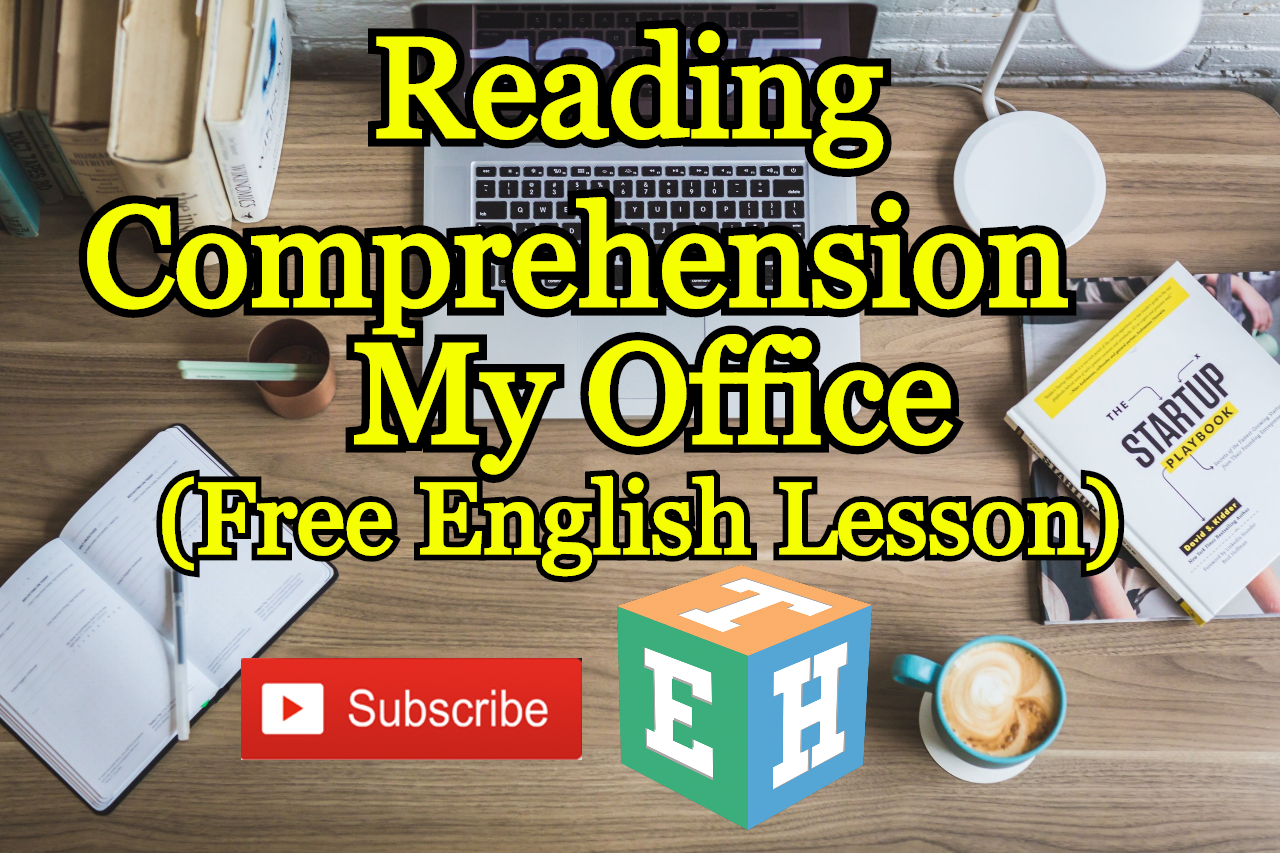Reading Comprehension-My Office
In this part of tutorial for beginners, learners are going to check their “Reading Comprehension?. How they answer the questions related to the topics they read? What are they level of understanding based on “Reading Comprehension?.
In this lesson, you will evaluate your “Reading Comprehension?” skills based on comprehension check questions activity.
Direction: Read a short story about My Office
Like most offices, my office is a place where I can concentrate on my work and feel comfortable at the same time. Of course, I have all the necessary equipment on my desk. I have the telephone next to the fax machine on the right side of my desk. My computer is in the center of my desk with the monitor directly in front of me. I have a comfortable office chair to sit on and some pictures of my family between the computer and the telephone. In order to help me read, I also have a lamp near my computer which I use in the evening if I work late. There is plenty of paper in one of the cabinet drawers. There are also staples and a stapler, paper clips, highlighters, pens and erasers in the other drawer. In the room, there is a comfortable armchair and a sofa to sit on. I also have a low table in front of the sofa on which there are some industry magazines.
Exercise 1
Multiple-Choice Comprehension Check Questions
Choose the correct answer based on the reading. Click on the arrow to check your answer.
- What do I need to do in my office?
A) relax B) concentrate C) study D) read magazines
2. Which piece of equipment do I NOT have on my desk?
A) fax B) computer C) lamp D) photocopier
3. Where are the pictures of my family located?
A) on the wall B) next to the lamp
C) between the computer and the telephone D) near the fax
4. I use the lamp to read:
A) all day B) never C) in the morning D) in the evening
5. Where do I keep the paperclips?
A) on the desk B) next to the lamp C) in a cabinet drawer D) next to the telephone
6. What do I keep on the table in front of the sofa?
A) company reports B) fashion magazines C) books D) industry magazines
Exercise 2
True Or False
Decide if the statements are ‘true’ or ‘false’ based on the reading. Click on the arrow to check your answer.
- I work late every night.
- I use highlighters to help me remember important information.
3. I keep reading materials that are not related to my job in the office.
4. It is important to me to feel comfortable at work.
Useful Vocabulary
armchair
cabinet
desk
drawer
equipment
furniture
highlighter
laptop
paperclip
stapler
armchair – a comfortable chair often found in a living room
· She’s got a beautiful armchair in her office.
cabinet – a small chest used for keeping papers, files, etc.
· I keep my markers in the cabinet drawer.
desk – writing table
· He’s got a large desk in his office.
drawer – sliding receptacle in a desk, cabinet, etc.
· The papers are in the drawer in the desk.
equipment – supplies and tools used to work
· He’s got a lot of equipment in his office.
furniture – moveable articles for use in the house or office
· We need some new furniture in our living room.
highlighter – pen used to mark passages in a bright color
· I use a yellow highlighter for important new words and a green highlighter for problems.
laptop – a moveable or portable computer
· I bought a new laptop to take on business trips.
paperclip – a small metal clip used to hold papers together
· She used a paperclip to hold the two pieces of paper together.
stapler – a small device used to bind papers together
– Could you hand me the stapler, please?
Direction: Read a short story about My Friend Peter and answer the questions
My friend’s name is Peter. Peter is from Amsterdam, in Holland. He is Dutch. He is married and has two children. His wife, Jane, is American. She is from Boston in The United States. Her family is still in Boston, but she now works and lives with Peter in Milan. They speak English, Dutch, German and Italian! Their children are pupils at a local primary school. The children go to school with other children from all over the world. Flora, their daughter, has friends from France, Switzerland, Austria and Sweden. Hans, their son, goes to school with students from South Africa, Portugal, Spain and Canada. Of course, there are many children from Italy. Imagine, French, Swiss, Austrian, Swedish, South African, American, Italian, Spanish and Canadian children all learning together in Italy!
MULTIPLE-CHOICE COMPREHENSION CHECK QUESTIONS
1. Where is Peter from?
a. Germany  b. Holland  c. Spain  d. Canada
2. Where is his wife from?
a. New York  b. Switzerland  c. Boston  d. Italy
3. Where are they now?
a. Madrid  b. Boston  c. Milan  d. Sweden
4. Where is her family?
a. American  b. England  c. Holland  d. Italy
5. What are the children’s names?
a. Greta and Peter  b. Anna and Frank  c. Susan and John  d. Flora and Hans
6. The school is:
a. international  b. big  c. small  d. difficult
TRUE OR FALSE
1. Jane is Canadian.
2. Peter is Dutch.
3. There are many children from different countries at the school.
4. There are children from Australia at the school.
Irregular verbs: The Hare and the Tortoise
Complete the story with the past simple form of the verbs.
One day the hare and the tortoise decided to have a race. The hare ___(know) that he ___ (can) run faster than the tortoise. But the tortoise ___ (be) more intelligent than the hare.
‘Yes, I’ll race you,’ ___ (say) the clever tortoise. The tortoise ___(have) a clever plan. He ___ (find) his brothers and sisters and he ___ (tell) them to wait in different places along the path of the race. So they all ___(hide) behind the trees along the path. The race ___(begin)! The tortoise ___(run) as fast as possible. But the hare ___(be) faster, of course. ‘This will be a very easy race’, ___(think) the hare. So the hare ___(decide) to have a rest, and he quickly ___(fall) asleep at the side of the road. Suddenly, the hare ___(wake up) and he ___(see) a tortoise ahead of him! ‘How did he get ahead of me?’ the hare asked himself. In fact, it ___(be) not his friend the tortoise: it ___(be) the tortoise’ s sister. But to a hare, all tortoises look the same. The hare___ (run) past the tortoise easily. Soon, he ___(can’t) see the tortoise, so he ___(sit) down and he ___(have) another rest. Then the hare ___(get up) and continued the race. But – as the hare happily ___(come) around the last corner before the finish line – his friend the tortoise crossed the line and ___(win) the race!
1. One day the hare and the tortoise decided to have a race. The hare [NO ANSWER] KNEW (know)
2. that he [NO ANSWER] COULD (can) run faster than the tortoise.
3. But the tortoise [NO ANSWER] WAS (be) more intelligent than the hare.
4. ‘Yes, I’ll race you,’ [NO ANSWER] SAID (say) the clever tortoise.
5. The tortoise [NO ANSWER] HAD (have) a clever plan.
6. He [NO ANSWER] FOUND (find) his brothers and sisters
7. and he [NO ANSWER] TOLD (tell) them to wait in different places along the path of the race.
8. So they all [NO ANSWER] HID (hide) behind the trees along the path.
9. The race [NO ANSWER] BEGAN (begin)!
10. The tortoise [NO ANSWER] RAN (run) as fast as possible.
11. But the hare [NO ANSWER] WAS (be) faster, of course.
12. ‘This will be a very easy race’, [NO ANSWER] THOUGHT (think) the hare.
13. So the hare [NO ANSWER] DECIDED (decide) to have a rest,
14. and he quickly [NO ANSWER] FELL (fall) asleep at the side of the road.
15. Suddenly, the hare [NO ANSWER] WOKE UP (wake up)
16. and he [NO ANSWER] SAW (see) a tortoise ahead of him!
17. ‘How did he get ahead of me?’ the hare asked himself. In fact, it [NO ANSWER] WAS (be)
18. not his friend the tortoise: it [NO ANSWER] WAS (be) the tortoise’s sister. But to a hare, all tortoises look the same.
19. The hare [NO ANSWER] RAN (run) past the tortoise easily.
20. Soon, he [NO ANSWER] COULDN’T (can’t) see the tortoise,
21. so he [NO ANSWER] SAT (sit) down
22. and he [NO ANSWER] HAD (have) another rest.
23. Then the hare [NO ANSWER] GOT UP (get up) and continued the race.
24. But – as the hare happily [NO ANSWER] CAME (come) around the last corner before the finish line – his friend the
25. tortoise crossed the line and [NO ANSWER] WON (win) the race!
For more readings
- How to agree and disagree in English using short answers
- The difference between “a little” and “little”
- The Difference between A FEW and FEW in English
- When to use “a little” and “a few”: English Grammar Rules
- Compound Words: English Vocabulary
- The difference between MUST and HAVE TO
If you have any questions or suggestions about Reading Comprehension-My Office, please feel free to leave a comment below or send us a message using our contact page.


